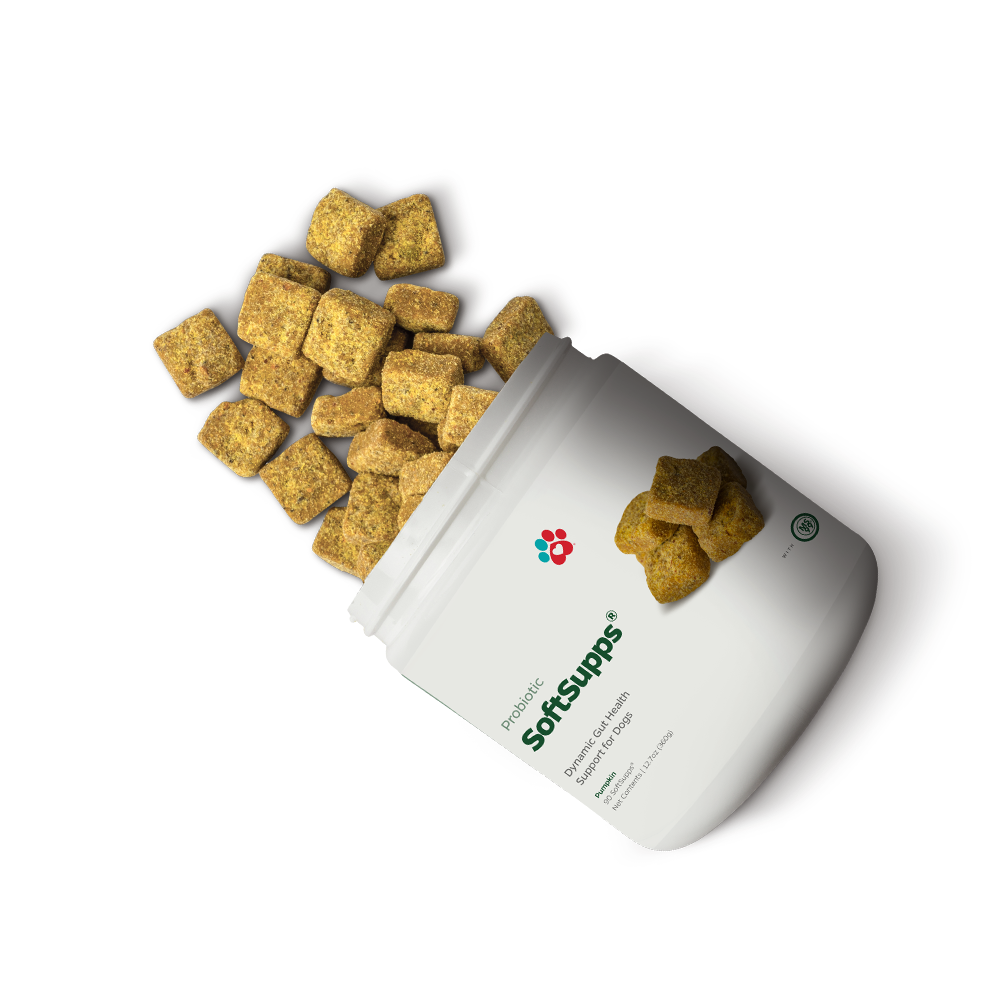Dog indigestion may be one of the hardest health issues pet parents deal with. What worries most pet parents is the fact something is very evidently wrong with their furbaby, but their dogs cannot communicate what is wrong. Dog upset stomach requires pet parents to be very observant in order to figure out what is wrong.

In some cases, gastrointestinal issues in dogs are noticeable, while other times are not. Similar to us, it is normal for our pups to experience dog upset stomach from time-to-time. To help you manage dog indigestion, we have come up with a guide on caring for dog indigestion – to help your furbaby live a happier, healthier life.
What is Dog Indigestion
Contrary to what most pet parents believe dogs have a tougher, and more powerfully built, digestive system. Dog’s strong digestive systems can be linked to their wolf ancestors. However, domestication factors, and years of genetic breeding, have led to slowly sensitized furbabies’ stomachs.
Dogs may occasionally experience a dog upset stomach. This can occur if a dog eats too much food, experiences a sudden change in diet, or eats the wrong food.
Common signs of dog indigestion include:
- dog throwing up bile
- diarrhea
- licking lips or licking the air (signs of nausea)
- gulping (sign of acid reflux)
- loss of appetite
- lethargy
- stomach bloating
- bad breath
- eating grass (A study from Proceedings of the National Academy of Science stated that dogs do this to self-medicate. The grass will help them vomit or pass it through.)
- passing gas
- regurgitation of their food
- starting and stopping meals without finishing
Severe symptoms of dog indigestion include:
- repeated, frequent dog throwing up
- painful swallowing (furbaby may cry or whine)
- bloody diarrhea
- fever
- weight loss
Dog indigestion is closely related to acid reflux, diarrhea, and nausea/vomiting or dog throwing up.
Acid reflux. This form of indigestion is the most severe and happens commonly to almost all dogs. Acid reflux, as the result of indigestion, sometimes means there can be a malfunctioning sphincter muscle to blame. The sphincter muscle that is improperly functioning expands due to the pressure coming from the build-up of stomach acids. This is sometimes caused when your furbaby eats too quickly, or overeats.
Diarrhea. Indigestion-related diarrhea means your furbaby may not be absorbing the nutrients coming from the food or vitamins. This is generally nothing to worry about, you will just have to wait for your furbaby to pass what they ate. If diarrhea lasts for an extended period of time, you should consult your veterinarian.
Nausea or vomiting. Pet parents sometimes confuse vomiting, or their dog throwing up, with regurgitation of food. According to WSU Veterinary Teaching Hospital, vomiting is the ejection of contents of the stomach and upper intestine; whereas regurgitation is the ejection of contents of the esophagus. Regurgitation typically occurs shortly after eating, and your pet may try to eat regurgitated food.
Caring For Dog Indigestion
Take preventive measures. In caring for dog indigestion, the first step is to prevent indigestion from happening. You may provide your furbaby with a low-acid diet that is easily digestible. The more your dog can easily digest the food they are given, the lesser will there be stomach acid buildup and the lesser will they develop indigestion.
Wait it out. If you realize your furbaby may be having a case of dog indigestion, do not panic. Instead, wait it out as it may be just because of the bad food they ate. Sometimes the best solution is to wait and observe if your furbaby can pass the problem on their own. While waiting it out, avoid giving your dog any food for about 12 to 24 hours. However, it is recommended that you supervise them very closely and take note of all the changes.
"Contrary to what most pet parents believe dogs have a tougher, and more powerfully built, digestive system."
Consider changing diet. If your furbaby’s indigestion may have been caused by their current diet, it is time to reconsider. Changing your dog’s diet is an effective way to aid dog digestion. When changing, do not feed them for a day or two, and then feed them small regular meals throughout the day.
Surprisingly, there are human foods that are great for dog indigestion. Brocolli, pumpkin, sweet potatoes, chicken and rice for dogs are just some of the many. These foods are safe for pets, especially chicken and rice for dogs, as it is low-fat and can be easily digested.
Provide canned pumpkin for dog. According to petMD, pumpkin for dog is one of the holistic solutions for a dog suffering from indigestion. Plain pumpkin has a low glycemic index, which helps with dog upset stomach and indigestion. It is important to make sure the pumpkin mix is plain, and does not include any harmful additives or spices - also double-check it is not canned pumpkin pie mix!
Hydrate. What makes dog indigestion threatening is that it tends to dehydrate your furbaby, as caused by the constant vomiting and diarrhea. Soothe your dog’s stomach and hydrate them by offering them a bone broth.
Provide Digestive Dog Supplements and Multivitamins. Strengthen your furbaby’s gut health by incorporating digestive dog supplements and multivitamins in their daily diet. Products like Probiotic SoftSupps® work best in dog indigestion situations.
Probiotic SoftSupps® can foster a balanced dog gut health environment as it helps promote the growth of good bacteria in the gut. Additionally, probiotics help break down food efficiently, help absorb nutrients properly, and help curb any digestive issues.

"Strengthen your furbaby's gut health by incorporating digestive dog supplements and multivitamins in their daily diet. Products like Probiotic SoftSupps® work best in dog indigestion situations. "
Incorporating Probiotic SoftSupps® will support your furbaby’s gut health in the best way possible. These probiotic dog supplements have been formulated with clinically studied Bacillus coagulans MS-99® which helps sustain gut flora in the digestive tract and provide a source of beneficial intestinal bacteria. These supplements for dogs are also made with a powerful 5-strain probiotic blend (5 B CFU) that assists in proper dog digestion and nutrient absorption. Plus, Probiotic SoftSupps® are also loaded with fiber, vitamins, and minerals for overall gut health!
Provide Turmeric and Curcumin supplements for dogs. Turmeric is popularly known for curcumin. Curcumin is its active component which is jam-packed with antioxidants and anti-inflammatory properties that can help calm down an inflamed digestive system in dog indigestion.
Exercise. Your dog needs exercise now more than ever. Dogs love going for a walk plus taking that walk to that park is a perfect way to get their metabolism running.

Slow down mealtimes with snuffle mats for dogs. Dogs who consume their meals too fast are more susceptible to dog indigestion. A helpful approach to this is by using a Forager® Bowl or a Forager® Mat to slow down their eating. Forager® Bowls and Forager® Mats are snuffle mats for dogs that encourage your furbaby’s natural foraging instincts. Not only does it control your furbaby’s eating speed and dog digestion, but it also gives them a stimulating experience during mealtimes.
Generally, mild dog indigestion can be managed at home. However, if indigestion does not resolve 24-48 hours and is getting worse or contributed by a pre-existing condition or medication your dog is taking, call your veterinarian immediately.









